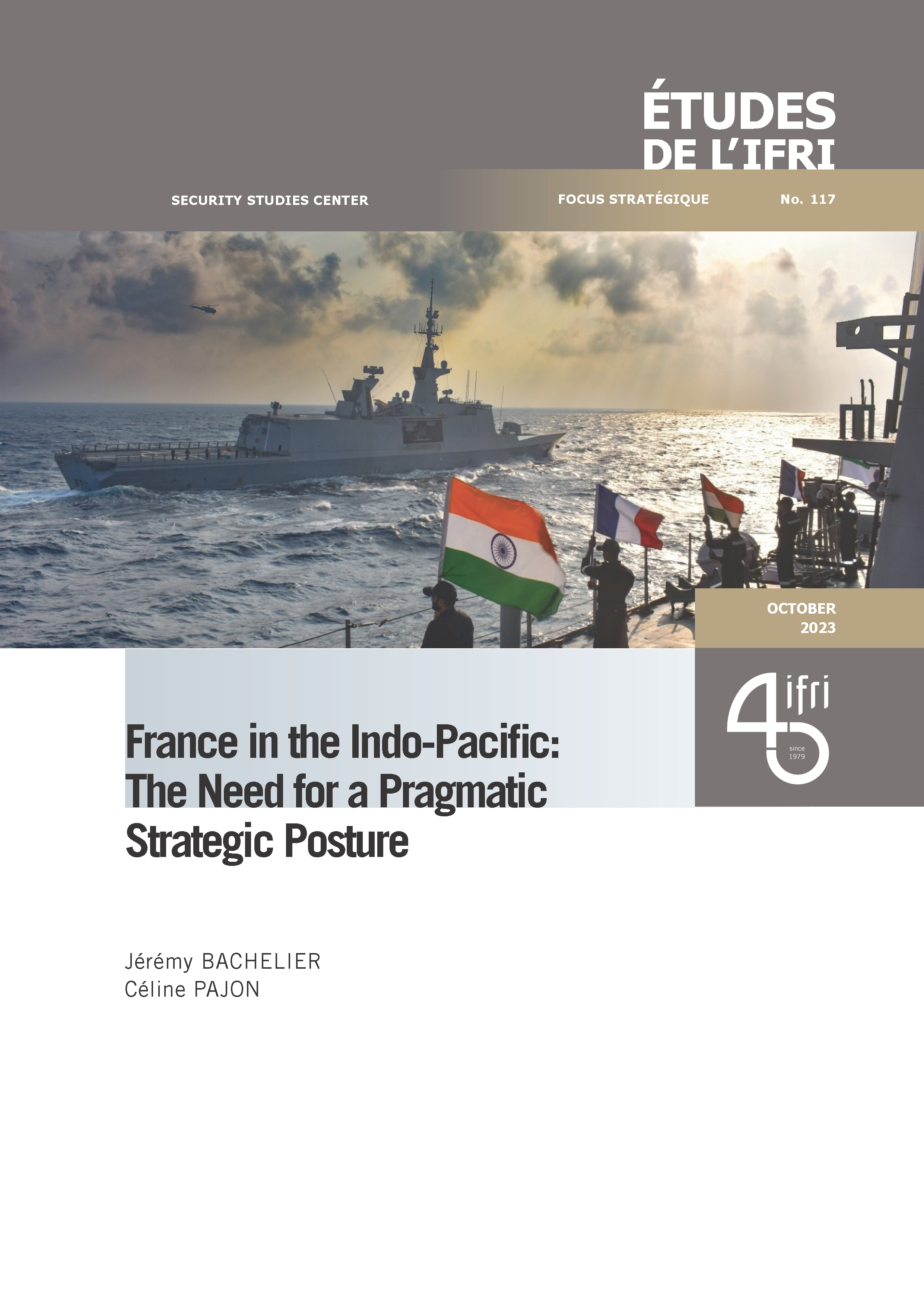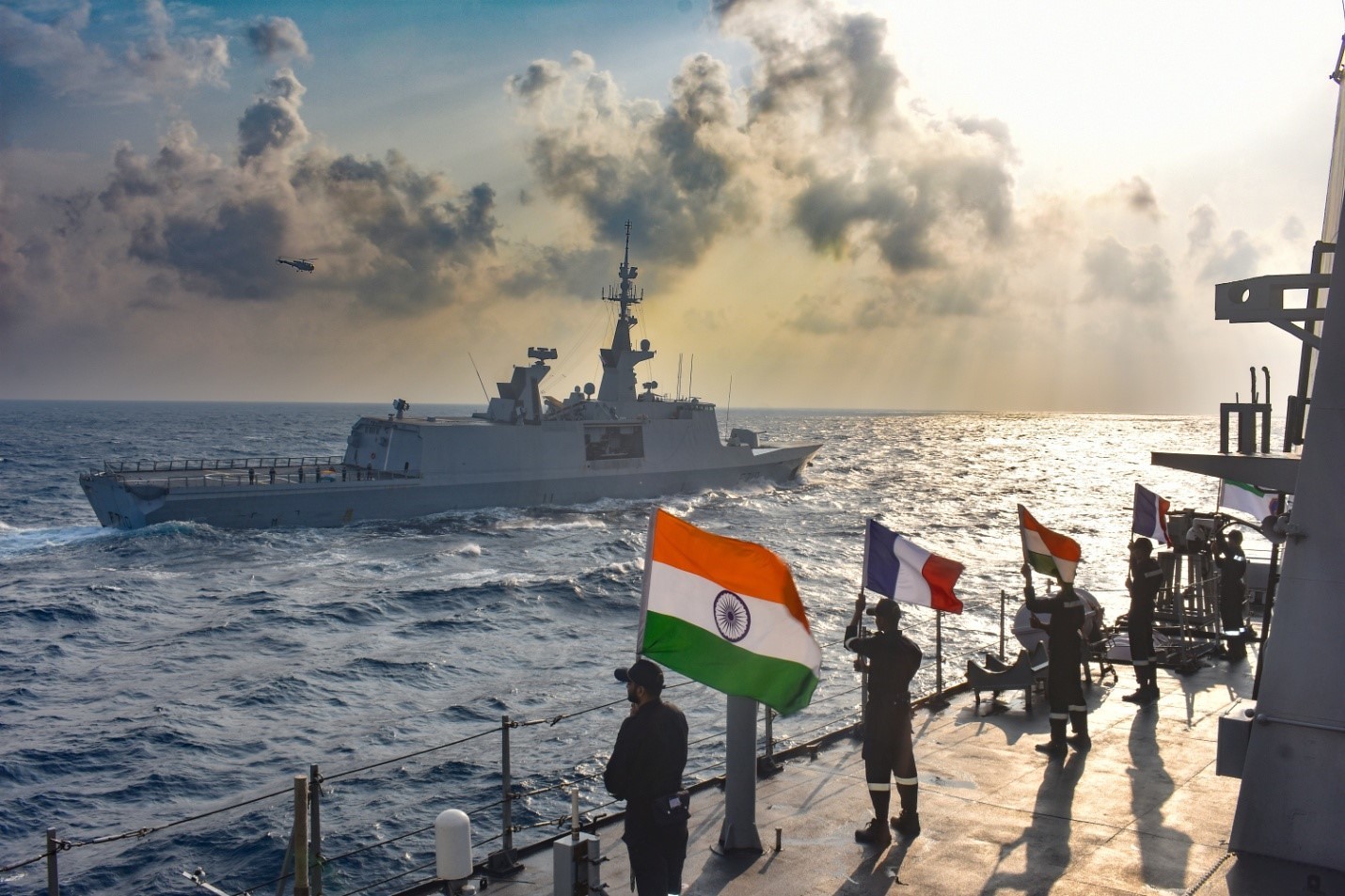France in the Indo-Pacific: The Need for a Pragmatic Strategic Posture

As US-China rivalry reaches its peak and the likelihood of a high-intensity conflict in the region seems greater than ever, this report advocates for a pragmatic recalibration of France’s strategic posture in the Indo-Pacific. This adjustment should be grounded in a realistic reframing of ambitions and an analysis of France’s core interests and the threats it faces.

The deteriorating security environment in the Indo-Pacific region poses a significant threat to French and European interests. Paris needs to fully understand the global implications of a major crisis. Four high-risk areas for high-intensity conflict stand out as particularly relevant to French interests: the Taiwan Strait, the South China Sea, the Korean Peninsula, and the northern Indian Ocean (in relation to Iran). Maritime security, environmental security, and the management of common resources (oceans, space), referred to as “non-traditional” security risks, are already sources of escalating tensions and factors of conflict in the medium term.
These potential crises in Indo-Pacific would have a major impact on maritime transport, energy supply and digital flows and would pose at least a triple challenge to France: safeguarding its overseas territories and the well-being of its citizens, securing maritime flows—encompassing both commerce and energy—, and maintaining its credibility as a power in the Indo-Pacific and on the global stage.
Given the strategic stakes and risks, several recommandations are made in this study, with the objective of clarifying, rationalizing, and strengthening the French strategic posture in the Indopacific. France must in particular adopt a more pragmatic strategic approach; acting as a "balancing power" must be an idealistic aspiration and give way to a more pragmatic position, especially against the United States. This stance would allow France to engage with relevant and effective initiatives and groups.
Download the full analysis
This page contains only a summary of our work. If you would like to have access to all the information from our research on the subject, you can download the full version in PDF format.
France in the Indo-Pacific: The Need for a Pragmatic Strategic Posture
Related centers and programs
Discover our other research centers and programsFind out more
Discover all our analysesThe Franco-German Brigade and the Revival of European Defense
One thing has been clear since Donald Trump's return to the White House: the very existence of the European unification project is threatened. Unless it develops a sovereign defense policy to counter the war in Ukraine and the weakening of American security guarantees, the European Union will continue to see its internal cohesion and external attractiveness wane.
Taking the Pulse: Can Europeans Build Their Independent Extended Nuclear Deterrent?
Confronted with a U.S. disengagement and the Russian threat, Europeans are reconsidering their stance on nuclear deterrence. Given the capabilities of the French and British arsenals, can Europe develop an independent nuclear deterrent?

RAMSES 2024. A World to Be Remade
For its 42nd edition, RAMSES 2024 identifies three major challenges for 2024.
A Transatlantic Defense Industrial Base? Two Contrasting Views
The evolving landscape of global defense cooperation has brought the transatlantic relationship between the United States (US) and Europe into sharp focus. As geopolitical tensions rise and the threat environment becomes more complex, the question of how Europe can best ensure its security while navigating its relationship with the United States has become paramount. This double feature report offers two contrasting views on the dynamics of US-Europe defense industrial relations, highlighting the challenges and opportunities that lie ahead for both parties.












